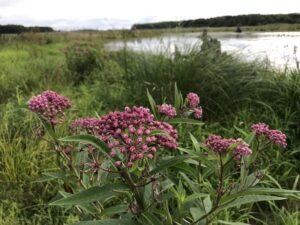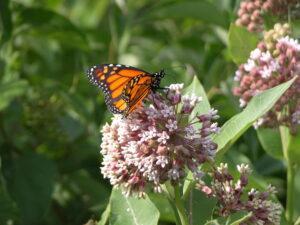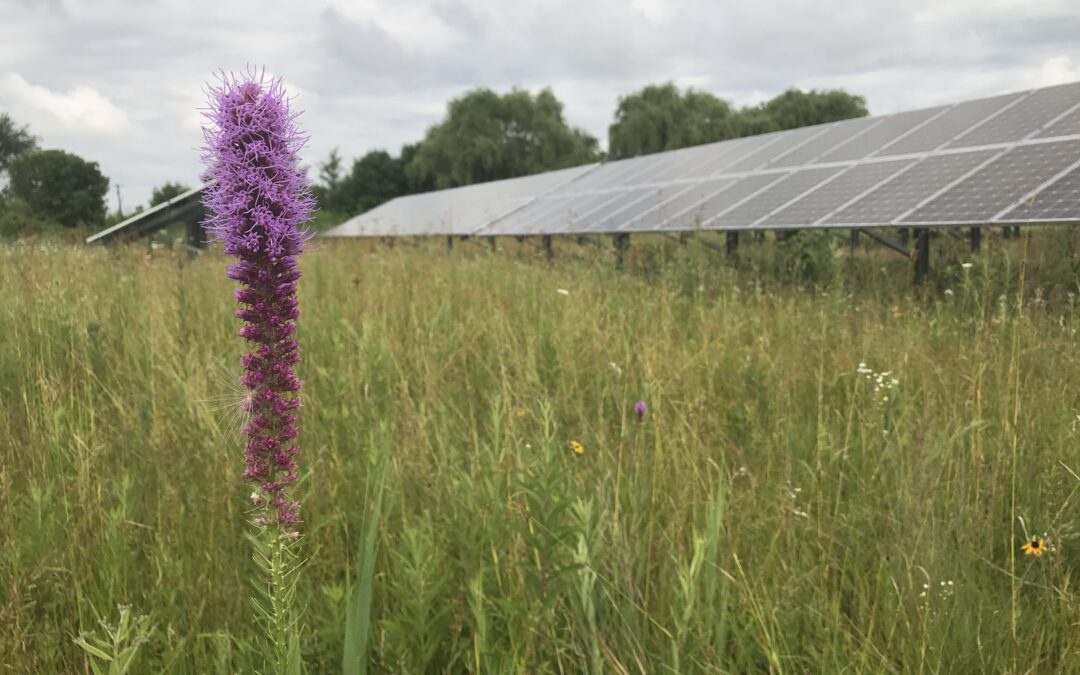Sometimes, the smallest things have the biggest impact. That’s true especially in the natural world when it comes to pollinators, the backbone of plant life and numerous ecosystems. These big contributions made by everything from bees to birds, bats to beetles are celebrated during Pollinator Week – which is June 16-22 – giving us humans a chance to recognize the importance of pollinators in our daily lives.
“Pollinators are essential to our daily life and to our economic system, providing ecological services like pollination that lead to one out of every three bites of food we eat being provided by pollinators,” Kristen LeForce, senior environmental engineer with DTE Energy, said. “But these important creatures are in peril, with an estimated 25% of bumble bees thought to be in serious decline.”
Pollination is a key part of the plant reproduction process. Pollen grain moves from the male part of a flower to the female part. It’s the first step in making seeds, fruits and the next generation of plants. Pollinators help this process by visiting flowers to drink nectar or feed off pollen and carry pollen from plant to plant as they travel.
Creatures that pollinate plants are responsible for bringing us foods including fruits, vegetables and nuts. The plants they support also supply half the world’s oils, fibers and raw materials; prevent soil erosion and increase carbon sequestration. Because these animals and insects play such a major role in our daily life, supporting pollinators is an important part of DTE’s environmental work.
“From building pollinator gardens at our Gas and Electric service centers, managing native prairies at our power plants, installing pollinator habitats inside our solar installations and partnering with the community on pollinator-specific projects, DTE is taking action in the fight to save our local pollinators – including the Monarch Butterfly,” LeForce said. 
Pollinator populations are in decline around the world, including in the United States. The loss of habitats, misuse of chemicals and changes in climate are all contributing factors. But there is a lot we can do to help save these important creatures.
“Saving the pollinators will take all of us rethinking how we manage our green spaces,” LeForce said. “Going beyond #NoMowMay and planting native plants – even in containers on your porch – or digging up parts of our lawn will help increase the available food and habitat for a variety of native bees, butterflies, moths, hummingbirds and more.”
Taking action can also be as simple as sharing what you know about pollinators, buying local honey and seeking out locally grown organic foods. This Pollinator Week, look to make a difference at your own home by starting locally.
“Check out your local farmers markets, garden clubs or nurseries to find plants that are native to Michigan,” LeForce said. “Any action – no matter the size – will have a positive benefit to our environment.”
